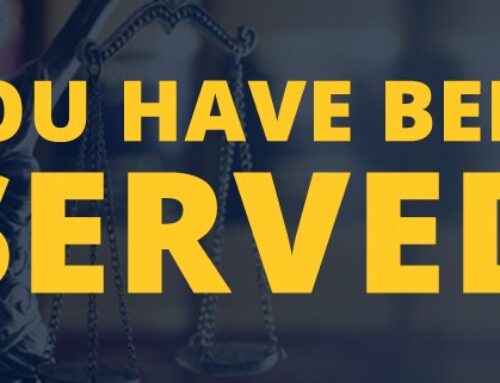Orders to Attend Court (N39)
Orders to Attend Court (N39) a sizeable amount of our instructions relates to serving Orders to Attend Court (N39) upon judgment debtors.
What we find quite interesting is the variance in Debtor attitudes relating to our involvement and how the matter progresses once the Order has been served.
I would expect that the vast majority of people reading this post are well aware of what the Order to Attend Court involves.
We’ll give a brief overview for the benefit of the minority.
Investigating the Debtors means
Once judgment has been obtained the Judgment Creditor (the person in whose favour the judgment was made – it could be the Defendant in a civil claim) has a number of options for enforcement. one way is to bring the debtor into court, by way of an Orders to Attend Court (N39)
The Order to Orders to Attend Court (N39) allows the Judgment Creditor to determine the appropriate course of action by gathering all the relevant information on a Judgment Debtor’s means. The idea is that this exercise will determine if the Debtor:
- Has any assets of material value
- Owns an interest in Property
- Is employed and how much they are paid
- Has a bank account and, if so, what the details and balances are
- Has any other debts and what they are doing to service them
This information is captured through a standard form questionnaire (EX140) which is completed by the Judgment Debtor in the presence of a Court Officer at a pre-arranged time.
All sounds good in theory. But doesn’t this rely on the Debtor’s co-operation- in a situation where they have no desire to help the Judgment Creditor out?
There is, attached to each Order, a penal notice which basically explains that if the Debtor does not attend the appointment then they can be held in contempt and be committed to prison.
Similarly, if the Debtor attends the appointment but refuses to answer questions this may also lead to the matter being referred to the Circuit Judge and a Committal Order being made. It is this presence of this penal notice that requires the whole order to be personally served on the Debtor.
The consequences of not complying with the Order are pretty serious.
In practice, the committal to prison will be suspended and a new Suspended Committal Order (N79) will be issued to the Judgment Creditor who will then need to arrange personal service (again) on the Debtor.
The Application
Creditors can request that a Debtor attend Court to provide information by completing a fairly straightforward application form in Form N316.
The form requires all the information that is present in the judgment together with the amount currently outstanding.
Interestingly, the Creditor can request additional questions be added to the standard form questionnaire and can even request that an agent attend the questioning to ensure that answers to the questions are forthcoming from the Debtor. This is a useful (although expensive) feature which the Creditor can take advantage of where they feel that the Debtor will be evasive or factually frugal during the questioning.
The Result
As indicated above, if the Debtor does attend the appointment, he will complete a questionnaire designed to provide a clear and unambiguous view of the Debtors assets and means.
The output from this entire exercise is not just the information contained in the EX140. Invariably this will paint a pretty dim view of the Debtors financial situation.
Many seasoned creditors will often have on file sufficient transactional information for, at the very least, a current view on the Debtors position. There may, however, be updated employment or bank information.
The inconvenience suffered by the Debtor in having to attend Court (who may have to arrange a day off work) can sometimes be enough for the Debtor to make contact and arrange a repayment plan.
How Best to Use Orders to Attend Court?
Clearly, where the Creditor has a very limited amount of information on a Debtor’s means, such an approach would be useful. Seasoned Creditors will, by this point, have acquired a wealth of information regarding the Debtor but may pursue this as a means of obtaining updated information of validating such data as they already have.
Where the Judgment is historic (or approaching limitation on enforcing a judgment debt) the Creditor will often have old or inaccurate data on their file. Typically, contact information will also have degraded and the Creditor may simply be unable to contact the Debtor. Occasionally, we are instructed by Creditors who are undertaking portfolio reviews (often in advance of a contemplated debt sale) who want a definitive answer on the collectability of a judgment debt. In this circumstance, the Creditor can apply for an Order to Attend Court to reach out to a previously uncontactable Debtor who may, in the intervening period, have improved their financial position to the point where a repayment plan becomes a possibility.
Creditors in the regulated consumer credit business will have a more customer-centric approach to recovery than a commercial creditor.
They may have attempted to obtain a statement of the Debtors’ means through cooperation with the Debtor. The Order to Attend Court process provides a useful tool to reconnect the parties by providing the Creditor with a presence in the field and driving a more responsible attitude in the Debtor- with sanctions if they don’t comply.
Ultimately, it must be borne in mind that the Order to Attend Court is but a tool in a fairly limited toolkit for Creditors. It’s a process that is administrative and may take some time to achieve results. That being said, it may often be required where the Creditor has limited information and, by providing the intelligence to drive enforcement decisions, can potentially save the hassle and cost associated with inappropriate enforcement.
We serve legal documents all over the World for a fixed fee. We assist our creditor partners and their professional advisors with their debt collection by providing field services aimed at driving recoveries, delivering intelligence and maintaining the customer-supplier relationship.
If you, or one of your clients, would benefit from this approach, get in touch.






